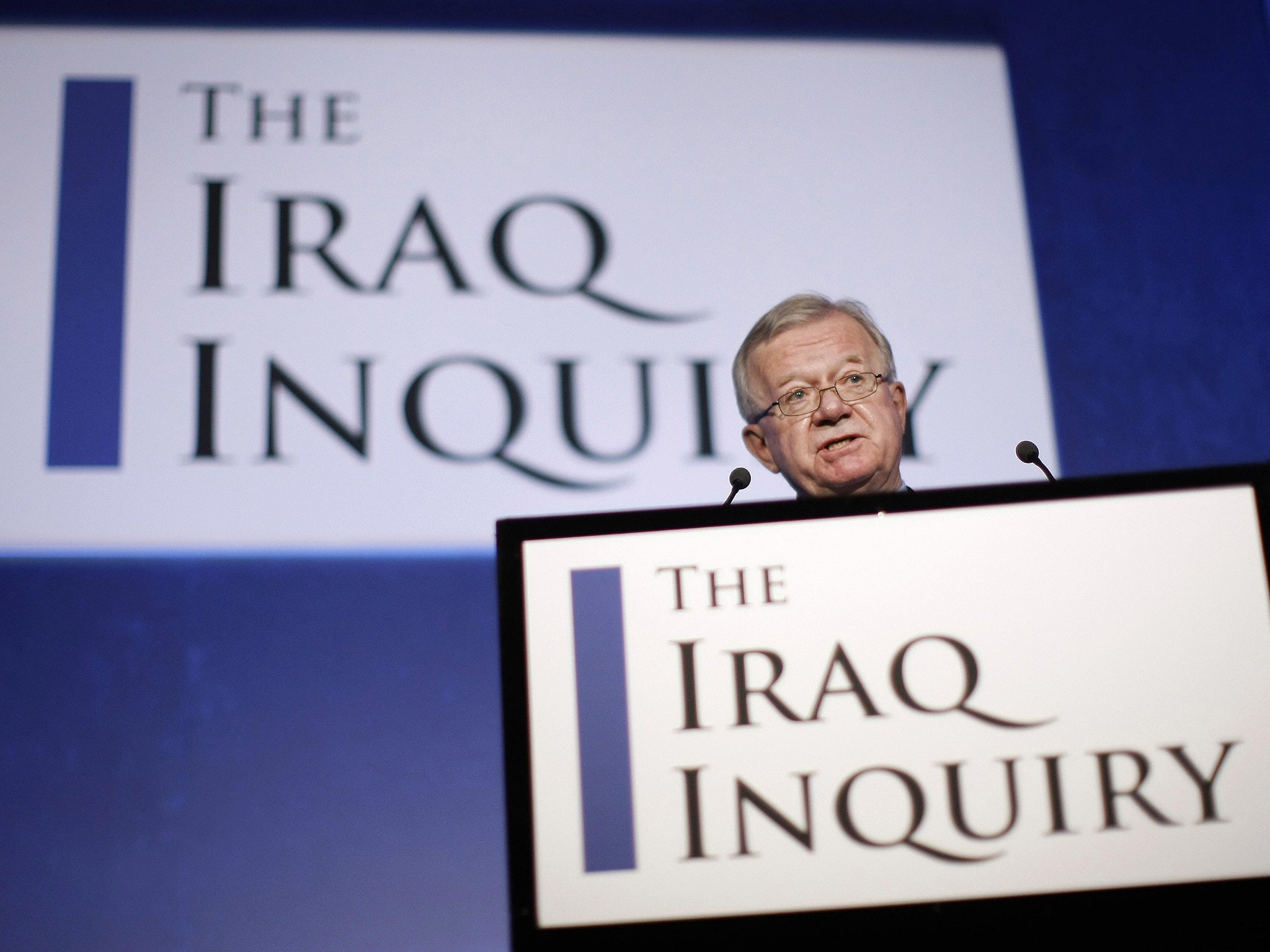Chilcot report: Inquiry into Iraq war to be published 6 July
Security checks on the 2.6 million word report have been completed without the need for any redactions

The long-running official inquiry into the Iraq War will present its findings in a report released on 6 July, it has been announced.
The Chilcot Inquiry, which was set up by Gordon Brown in June 2009 to look into the run-up to the 2003 invasion of Iraq, will release its 2.6 million word report just two weeks after the EU referendum
The date was agreed and confirmed in correspondence between the Prime Minister David Cameron and Sir John Chilcot, the former civil servant leading the inquiry.
The report, which is four times the length of War and Peace, is expected to be critical of some public figures’ role in the run-up to the war.
The most recent delays to the report – which last took a hearing half a decade ago – are thought to have related to its so-called “Maxwellisation process” by which those criticised were given an opportunity to respond.
The report will be based on the testimony of more than 150 witnesses, who contributed to more than 130 sessions of oral evidence.
It also incorporates the results of the examination of 150,000 Government documents examined.

The final product has also undergone several months of security and intelligence vetting to ensure its contents do not reveal sensitive details.
In a letter to the PM, Sir John said: “National Security Checking of the Inquiry’s report has now been completed, without the need for any redactions to appear in the text. I am grateful for the speed with which it was accomplished.”
He said the 6 July date was selected in order to “allow suitable time for the Inquiry to prepare the 2.6 million word report for publication, including final proof reading, formatting, printing and the steps required for electronic publication”.

Last year Sir John rejected MPs’ calls to set a deadline on the report, saying putting an artificial endpoint on the marathon probe risked “arousing false expectations”.
Mr Cameron himself in June however wrote to the chair to say he was “fast losing patience” with delays in the report’s publication.
Conservative MP and former shadow home secretary David Davis has said the wait for 179 families of those who had loved ones killed during the invasion has been “agonising”.

He last month said lives had likely been lost due to delays in the report – because its lessons had not been learned in time for recent interventions in Libya, Syria, and Iraq.
Labour’s Jack Straw, who was foreign secretary in the run up to the invasion, told BBC News that he was pleased the report was being released.
“It was a very important and controversial decision and it is right that the Inquiry has taken the time they felt they needed,” he told the broadcaster.
An inquiry spokesman said: “The Iraq inquiry was set up in June 2009 by former prime minister Gordon Brown to consider the UK’s involvement in Iraq from the summer of 2001 to the end of July 2009.
“The scope of the report is unprecedented; covering decisions over a nine-year period to establish what happened and to identify lessons that can be learned.
“To construct an accurate account of events and actions, the inquiry received evidence from over 150 witnesses, held more than 130 sessions of oral evidence, and analysed more than 150,000 government documents as well as open source material.”
The invasion of Iraq by the US and UK, which was launched in 2003 and continued until the last UK troops were withdrawn in 2011, was a controversial decision.
Join our commenting forum
Join thought-provoking conversations, follow other Independent readers and see their replies
Comments
Bookmark popover
Removed from bookmarks